Holocaust Remembrance Day
Holocaust Remembrance Day, also known as Yom HaShoah, is a memorial day for the six million Jewish people who were killed during the Holocaust. It is observed on the 27th day of the Jewish month of Nisan, which usually falls in April or May. This day is a time to remember the victims of the Holocaust and honor their memory.
History of the Holocaust
The Holocaust was the systematic, state-sponsored persecution and murder of six million Jews by the Nazi regime and its collaborators. This genocide also targeted millions of other people, including Romani people, disabled individuals, Poles, Soviet prisoners of war, and others who were deemed undesirable by the Nazis. The Holocaust took place during World War II, from 1941 to 1945, and resulted in the largest genocide in history.
Observance of Holocaust Remembrance Day
On Yom HaShoah, people around the world pause to remember the victims of the Holocaust through various commemorations, ceremonies, and educational programs. It is a day to reflect on the horrors of the Holocaust, pay tribute to the survivors, and vow to never forget the atrocities that took place. Many Jewish communities and organizations hold memorial services, light candles, and recite the names of the victims as a way of preserving their memory.
Study Guide
- What is the significance of Holocaust Remembrance Day?
- When is Holocaust Remembrance Day observed?
- Who were the primary victims of the Holocaust?
- What is the importance of commemorating the Holocaust?
The significance of Holocaust Remembrance Day is to honor the memory of the six million Jewish people who were killed during the Holocaust and to ensure that the atrocities of the Holocaust are never forgotten.
It is observed on the 27th day of the Jewish month of Nisan, which usually falls in April or May.
The primary victims of the Holocaust were Jewish people, but the genocide also targeted other groups, including Romani people, disabled individuals, Poles, Soviet prisoners of war, and others.
Commemorating the Holocaust is important to ensure that the world remembers the horrors of the past and works to prevent such atrocities from happening again. It also serves as a way to honor the memory of the victims and survivors of the Holocaust.
◂Social Studies Worksheets and Study Guides Third Grade. World Holidays

 Study Guide
Study Guide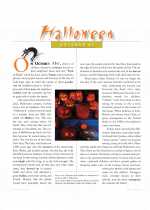
 Study Guide
Study Guide
 Study Guide
Study Guide
 Study Guide
Study Guide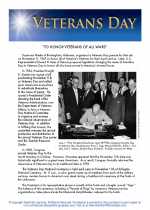
 Study Guide
Study Guide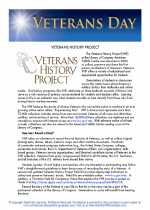
 Study Guide
Study Guide
 Study Guide
Study Guide
 Study Guide
Study Guide
 Worksheet/Answer key
Worksheet/Answer key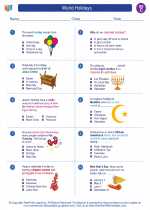
 Worksheet/Answer key
Worksheet/Answer key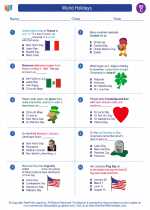
 Worksheet/Answer key
Worksheet/Answer key
 Worksheet/Answer key
Worksheet/Answer key
 Worksheet/Answer key
Worksheet/Answer key
